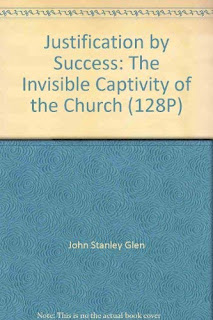Interpretation and Memory; Justification by Success
Do you ever spend some time reminiscing about something - some season, some event, some person - and then have your memories corrected by someone else who was there? I think we've all mis-remembered like this. Held on to the good things and forgotten the hard or, perhaps more commonly, the reverse. I know I do.
On other occasions I find that time has altered an experience. What was horrible in the living has become humorous in the telling. This is not mis-remembering but, perhaps, reframing. In outdoor activities I have heard this called "Type 2 Fun." It's not fun now, but we'll enjoy talking about it later.
We have lots of stories from our time in S. Korea that fit into both of these categories.
I know I have often found myself remembering all the fun we had in our first apartment together - things like: celebrating our first Christmas together with a mini-tree, Costco pumpkin pie (we had to go back and buy a 2nd one because we ate the first one so fast it didn't make it to Christmas), and presents from home; having family visit from Canada; learning how to bake in a toaster oven; and more) - without also remembering that we had mold growing in our ceiling, got sick way too often, and I came home weighing something like 118lbs.
Or the story of our trip to S. Korea, a nearly 36 hour journey from Kristina's parents in Maple Ridge to our dorm room in Sokcho. We arrived and the first thing we heard was "Ok, Andrew, your room is this way and Kristina your room is this way (pointing in the opposite direction." We were not having any of that! But, what was incredibly taxing and tiring in the living has been a great tale to retell, and one that can easily continue into our 3 weeks of camp climaxing with the story of how the food was so awful that I accidentally overcame my inability to eat pancakes! (and what a gift that is, to this day :).
I could go on. What I found in rereading this book, which was another that I had stuffed into our suitcase for that first trip to S. Korea, was that my memory can easily work the same way around books. In looking at my shelf to pick out the 40 books I would read for this journey through the past 20 years of my life, this one seemed an obvious choice. Justification by Success. What I remembered about this book was the way in which it prepared me well for ministry by showing me, in advance, one of the seductive traps that many ministers fall into: justification by success. Shelved in my mind, right next to this book, are Jesus haunting words from Matthew 7:
"Many will say to me on that day, ‘Lord, Lord, did we not prophesy in your name and in your name drive out demons and in your name perform many miracles?’ Then I will tell them plainly, ‘I never knew you. Away from me, you evildoers!’
If ever there was a blow against justification by success, this was it.
Now, to be fair, Glen's book does touch on this, but not much. He does speak quite directly against the idea of success as evidence of the Lord's favor and the ways in which we are tempted, in the church, to give in to this view in spite of Jesus example.
As a whole, however, the book is about the massive shifts in culture that have been underway since the 50's (the book was written in 1979, but the cultural shifts are still apparent today) towards a culture of the worship of power and how the church itself is going along with this movement. To this end, Glen examines the ways in which power is worshipped, consolidated, and made into the goal of life for each individual (who are, themselves, characterized in this new religion as autonomous units of greater or lesser power). He then parallels the ways in which this cultural shift infiltrates the church through our acceptance of consumeristic discontinuity, numerical reductionism, and idolization of the aesthetic and the technical. In the final chapter Glen urges us, as churches, to understand and know deeply the world we live in and hold it under the light of the Gospel, fulfilling our role as prophetic witnesses of Jesus.
If that last paragraph read like a mouthful (a mind-full?) then it is a fairly good reflection of the book. I enjoyed reading it again but it's not going to be a book for many people. Further, if you are particularly interested in this kind of reading then I have better books to recommend to you, one of which (The Way of the Modern World by Craig Gay) will be coming up soon in this series.
Note: This post is part of a series which I began here. To see all the posts in the series click the label at the bottom of this post "20yrs40bks".

Comments